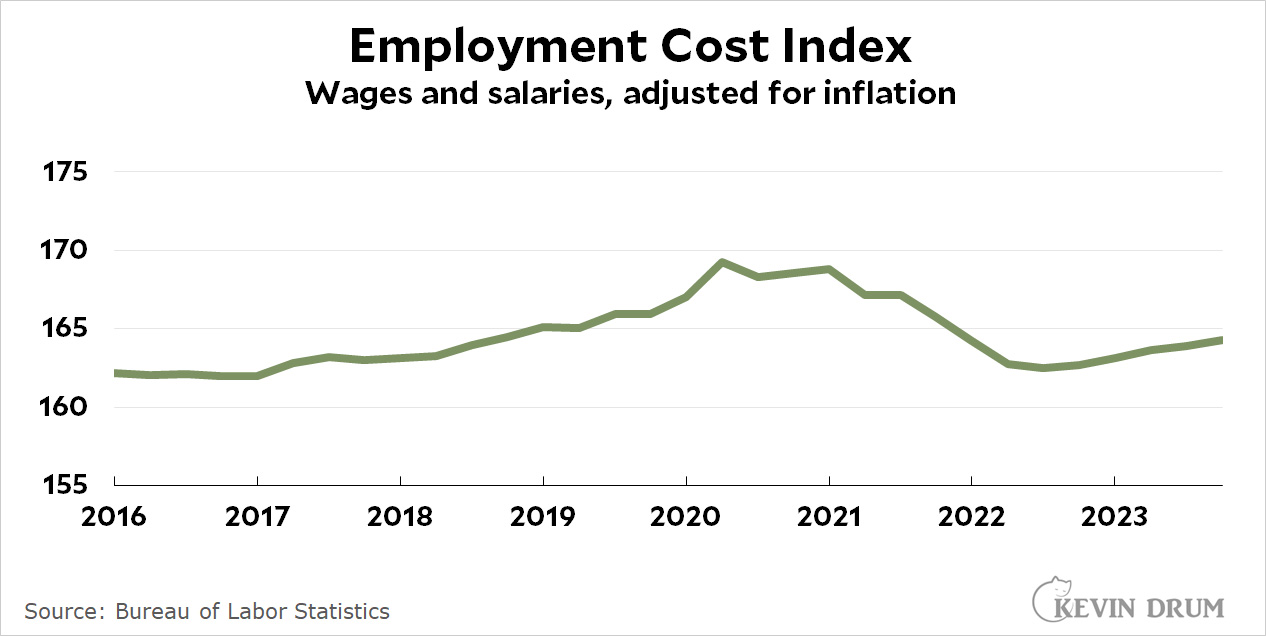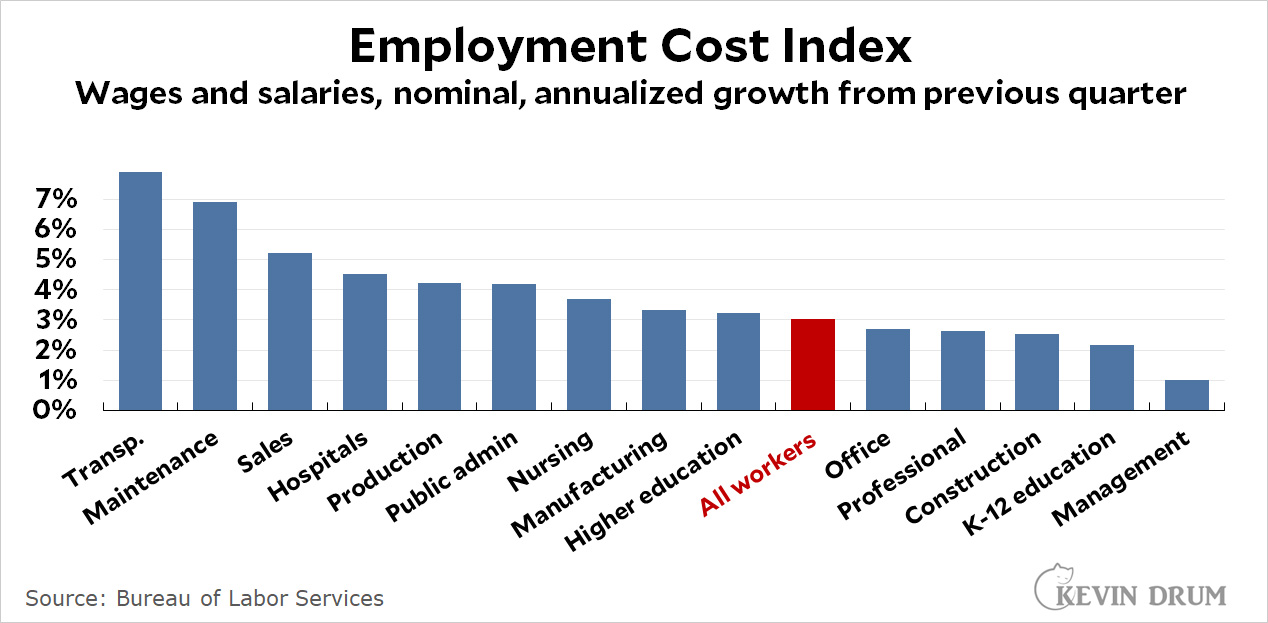The Employment Cost Index represents the cost of employing an average person, and in some ways it's one of the most accurate measures of individual earnings. In Q4, after adjusting for inflation, it was up 0.9% from the previous quarter on an annualized basis:
 The biggest winner last quarter was transportation. The smallest increase was for managers:
The biggest winner last quarter was transportation. The smallest increase was for managers:


What does any of this matter if Elon Musk isn't allowed to make $50 billion? Let's focus on those who are really hurting...the billionaires.
The pathetic "upward climb" of wages and salaries isn't stopping the increase of inequality. From 2016 to 4th quarter 2023 this index increased a total of 1.1%, while GDP increased 16.3% (corrected with the CPI). This means that essentially all the increase in real GDP has gone (apparently) to non-wage/salary compensation and gains, that is mostly to rich people.
There is no reason to think that the somewhat faster increase over the last year or so will continue - there has been no miracle in the US economy which would change the ability of workers to get raises. The very low unemployment, which has been going on for a long time except for the two years of the pandemic, has not done the trick, nor will it.
By this measure wage growth looks better just before the pandemic than recently, but other measures of wages don't show this. Basically except for the pandemic wages have been on the same trend since the 90's, that is only growing slightly faster than prices. This has nothing to do with Trump vs Biden, neither of whom controls wages, it's just how the US economy works now.
I'm a manager. What is this thing called "wage growth"?
I do have one complaint about Kevin. He says the Employment Cost Index "in some ways it's one of the most accurate measures of individual earnings." It showed wages and salaries slightly below the pre-pandemic level. But every other chart he's posted, and basically every chart posted by economists for the past year, show workers earning more now compared to before the pandemic. How can that be?
I know he isn't an economist, but it isn't obvious to me why this measure contradicts all the others and I want to know.
This page:
https://pages.stern.nyu.edu/~nroubini/bci/ECI.htm
says "Unlike the Average Hourly Earnings measure of wage inflation, the ECI is not affected by shifts in the composition of employment between high-wage and low-wage industries or between high- and low-wage occupations within industries. Thus, the ECI represents labor costs for the same jobs over time."
OK. So logically, if other measures show workers earning increasing it means a lot of workers are changing jobs and/or industries.
But since changing jobs for better paying jobs is not inflationary, the Fed likes this measure to tell them if inflationary pressure is building.